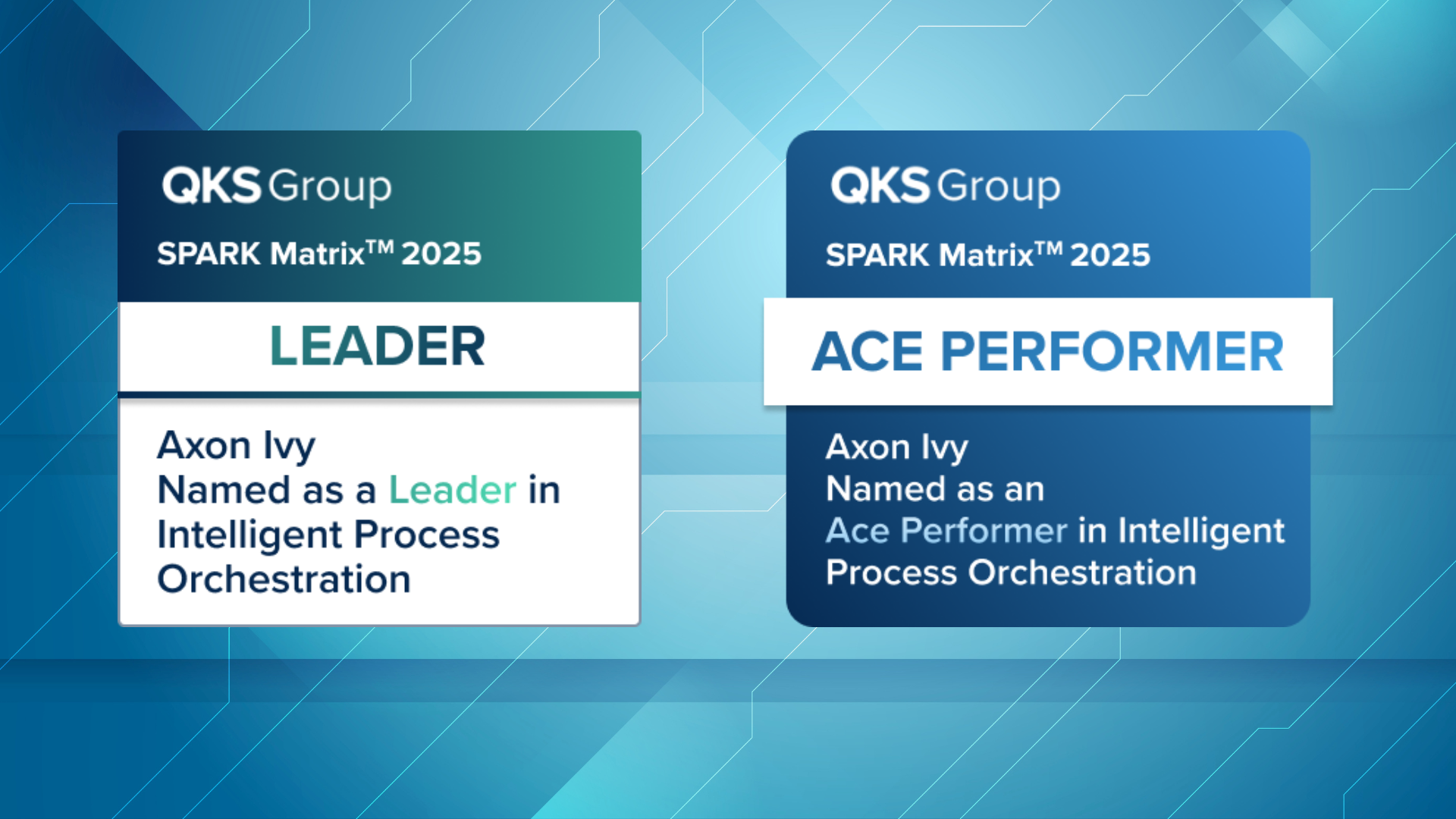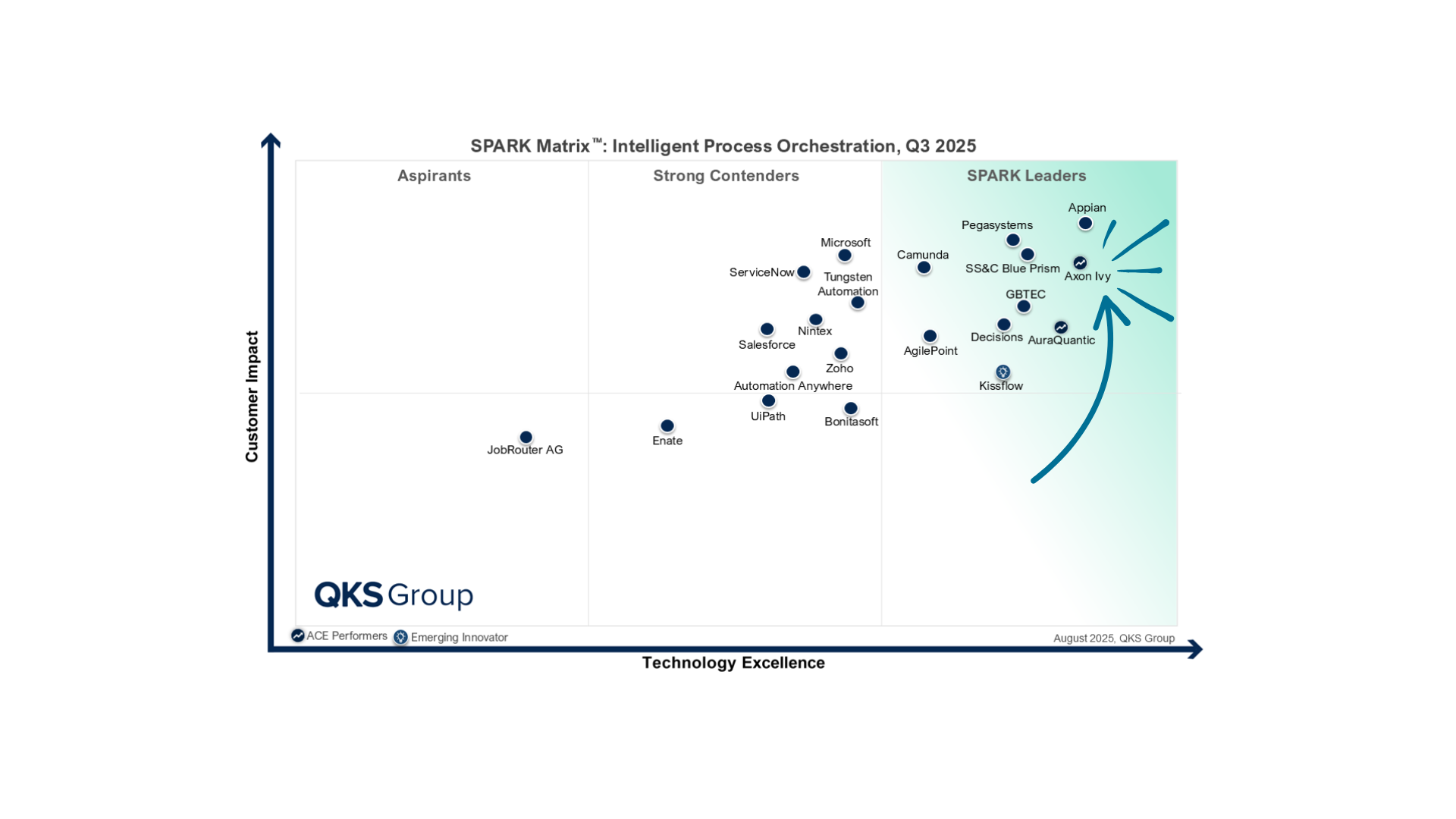
The Company of the Future Is Autonomous
Even four years after the start of the COVID-19 pandemic, many companies and their processes remain tightly bound to specific locations and equipment. However, the landscape is shifting. Cutting these ties while utilizing a process automation platform ensures the long-term success and durability of businesses.
Analysts frequently discuss the vision of an autonomous company – one that operates seamlessly regardless of employee location. But how autonomous are today’s companies, and what do they need in order to become autonomous in future? Axon Ivy sat down and discussed these issues with experts from Forrester Research, E.ON and Currenta.
Digitalization and Automation of Everyday Processes
Remote work has become the new norm, forcing companies virtually overnight to ensure their staff can work effectively from any location. The digitalization and automation of everyday processes became a central focus during the COVID-19 pandemic.
According to a company survey carried out by Forrester Research, up to 60% of companies are planning to introduce a “run and manage from anywhere” strategy. This can be implemented with the help of Digital Process Automation (DPA) platforms, which are used to organize automation tools such as RPA (Robotic Process Automation) while also incorporating artificial intelligence (AI) in the processes. These platforms offer departments maximum flexibility through a low-code approach.
Digital Problem-Solving at E.ON
Andreas Claeßen from Automation Delivery Services at E.ON Digital Technology explains:
"We operate across 10 different locations in Europe and manage numerous wind farms. When issues arise, it isn’t always possible for a technician to be on-site immediately. These problems need to be addressed digitally. The pandemic highlighted this need even more. It posed a significant challenge to quickly transition 70,000 employees to remote work.
Dr. Bernhard Schaffrik, an analyst at Forrester Research, advises: "Companies should test and experiment to build in-house expertise and advance automation company-wide. Currently, over 70% of companies still rely on paper-based processes."
In many places, there aren’t enough specialists available to systematically implement the automation process. "We therefore recommend testing and experimenting in order to build up in-house expertise over time and to push forward with automation across the entire company," Dr. Bernhard Schaffrik, an analyst at Forrester Research, explains. After all, most companies are still far from fully leveraging the available technological advancements, with over 70 percent continuing to rely on paper-based processes.
“Open communication and effective change management must go hand in hand with automation initiatives.”
Oliver Deutsch
Director Sales & Marketing, Axon Ivy AG
Requirements for Achieving Autonomy through Automation
Rolf Stephan, CEO of Axon Ivy, explains: "Large corporations often take a strategic approach to automation by creating competence centers to consolidate expertise. However, many companies adopt a tactical approach, making incremental progress without a holistic view. Instead of seeking off-the-shelf solutions, companies should develop internal skills." As a result, many companies purchase automation tools while ignoring the underlying process structure and what this entails.
To avoid the pitfalls of fragmented automation efforts, where companies purchase tools without considering the underlying process structures, intelligent automation platforms are becoming increasingly important. These offer a holistic solution, can be adapted flexibly, and are more cost-effective than products from classic software providers such as SAP. The process automation platform Axon Ivy is based on a low-code approach is user-friendly and requires minimal training. It integrates third-party systems, machine learning, and RPA, ensuring complete transparency and documentation.
Successful Change Management at Currenta
Over the past few years, Currenta – the operator of one of Europe’s largest chemical facilities – has replaced its disposal management system with the process automation platform from Axon Ivy, including interfaces to third-party systems and the relevant authorities. Klaus-Dieter Schneider, Head of Management, Processes & Systems at Currenta, explains: “Such a system must be developed collaboratively and flexibly, not bought off the shelf.”
Successful implementation requires staff with relevant knowledge of business processes and passion for their work. These individuals drive the initiative and pass on their expertise and enthusiasm to their colleagues. This is crucial, as the staff will only use a solution efficiently and work autonomously when they truly believe in it. Open communication and successful change management, therefore, have to go hand in hand with the automation measures.
The Axon Ivy platform acts as the central hub for digitizing the entire waste management process. This seamless process ensures full compliance with legal requirements, from waste generation through multiple transportation services to final disposal.
The solution includes:
- Unified application for the waste management process (front-end and back-end)
- End-to-end digitization from order placement to automatic invoicing
- IoT integration: Heavy-duty scales for weighing waste during truck entry and exit
In the future, complex documents with barcodes, dynamic templates, and layouts will be generated automatically at the push of a button. Thanks to digital signature components, this will also include creating legally binding documents.
The automated end-to-end process guarantees comprehensive documentation of the disposal process for over 2 million tons of waste annually, ensuring the correct categorization of transports and associated procedures. Implementing Axon Ivy has improved efficiency, enhanced quality, and ensured adherence to high compliance standards.
The Verdict?
Experts agree that digitalization and process automation are foundational steps toward creating an autonomous company. However, many companies still lack the expertise and strategy needed for effective automation tool selection and implementation. Platforms like Axon Ivy unify various technologies and tools, centralizing control. The workforce's acceptance of these solutions is crucial for maximizing automation benefits. Current external pressures can help get management and colleagues on board, paving the way to achieving the goal of becoming an autonomous company, meaning working from anywhere will be possible in the future.




